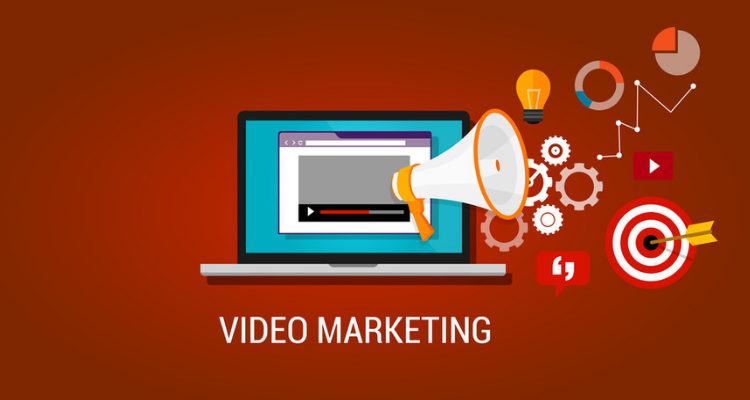If you have a content agency, you’re well aware of how artificial intelligence and marketing automation can change the outlook of any business. Using advanced platforms can not only help you create high-quality content but can also assist with content strategy and related processes.
Nowadays, it’s hard to imagine any digital marketing process without these awesome tools. Marketers and business owners use them for all sorts of stuff, from inbound marketing to email marketing, social media, and other forms of demand generation.
In this particular guide, we want to talk about the impact of AI on the content marketing service. Similar to other fields, artificial intelligence has increased content production efficiency and precision, allowing brands to maximize their impact with various strategies and channels.
Introducing AI Platforms To Your Content Workflow
In the last few years, the industry has experienced a major global expansion, partially fueled by the COVID crisis. Marketing and sales tools, in particular, experienced the biggest breakthrough, which makes sense given that any business can benefit from this type of software.
On average, a content marketing agency relies on at least 5 to 10 tools for their daily activities. Besides content creation and optimization, service providers also use these platforms to analyze the market, perform keyword research, generate content from scratch, and perform other tasks.
In fact, it’s common to have several tools integrated together, allowing a marketing agency to write articles while simultaneously checking their optimization score and fixing grammar mistakes.
Unlike traditional marketing software, AI products are known for their simple integration. So, if you’re looking to use one of these bad boys for your next content marketing campaign, all you’ll need to do is register an account and access the platform via a browser. As simple as that!
Benefits Of AI Content Tools
As mentioned, there’s little these incredible programs can’t do for your content brand:
Keyword Research
Keyword research is a process commonly performed by SEO brands. However, there are many situations where writers have to execute this task. Nowadays, keyword research feature usually comes as a part of larger SEO platforms such as AhRefs, Moz, and SEMRush.
Keyword research is vital if you wish to create engaging content for your target audience. Aside from relevancy, you should also look out for search volume and keyword difficulty as main indicators of the keyword’s quality.
Audience Behavior
Tools such as Google Analytics are perfect for analyzing visitors’ behaviour. The platform gives you advanced demographic insights while also providing information about users’ website interactions.
By using this advanced AI software, you can determine which content performed well and which one struggled with your audience. It’s a critical tool for increasing engagement, improving optimization, and generating more sales.
Content Generation
At this moment in time, AI content generation is a major grey zone that could shape the fabric of content marketing. By using tools such as Jasper and Midjourney, you can create texts and images within seconds, with minimal human involvement.
While these platforms are still not a part of common content marketing workflow, partially because they’re not good enough, it’s only a question of time before they’ll replace human writers.
Text Checking
During editing, marketing teams use various tools such as Grammarly and CopyScape. These platforms can detect grammar issues, plagiarism, and AI content, ensuring that you don’t suffer search engine penalties and that your posts are highly engaging.
Content Optimization
Just a few years ago, tools such as SurferSEO, MarketMuse, and Frase were seen as expensive apps that provided no real value. Nowadays, they’re an integral part of content marketing, but also any other marketing process.
With these platforms, you can create outlines for your posts, track relevant keywords, and find optimal word counts. They come with optimization scores, allowing users to benchmark their performance against top-performing pages in Google.
Challenges That Come With AI Software
Choosing the right brand is perhaps the biggest challenge when implementing these tools. Given that almost every tool uses a different technology and relies on different datasets, you can get significantly different results depending on what you’re using.
In theory, you could implement several AI content generators or optimizers to get even better results, but that would quickly drain your budget. The cost of choice also lies in the fact that choosing the wrong software would inherently give your competition a head start, as they would have a superior toolbox.
We also have to consider customization issues. Some brands and industries have special requirements for their software, which is why these businesses would profit more from having in-house proprietary software.
We also have to mention the loss of control, which is common for all tools, not only content platforms. Basically, there’s always a chance that a software provider will misuse your data or that it will abruptly go out of business. If this were to happen, it would completely ruin your daily workflow, forcing you to create a brand-new framework.
To find out more about content and how it can help your website, check out these articles:
- Why the Future of Content Will Be User Created & Controlled
- How Website Content Helps With SEO
- Content Personalisation and Interactivity as Part of Your Digital Marketing Strategy
- How To Ensure Your Content Marketing Strategy Has ROI
- Writing longer content that ranks
- Clever Content Optimisation Tactics Necessary to Avoid Common SEO Mistakes
- How User Generated Content Improves SEO, Traffic And Sales
- How To Start A Copywriting Career
- 10 Tips for Writing Effective Advertising Copy








